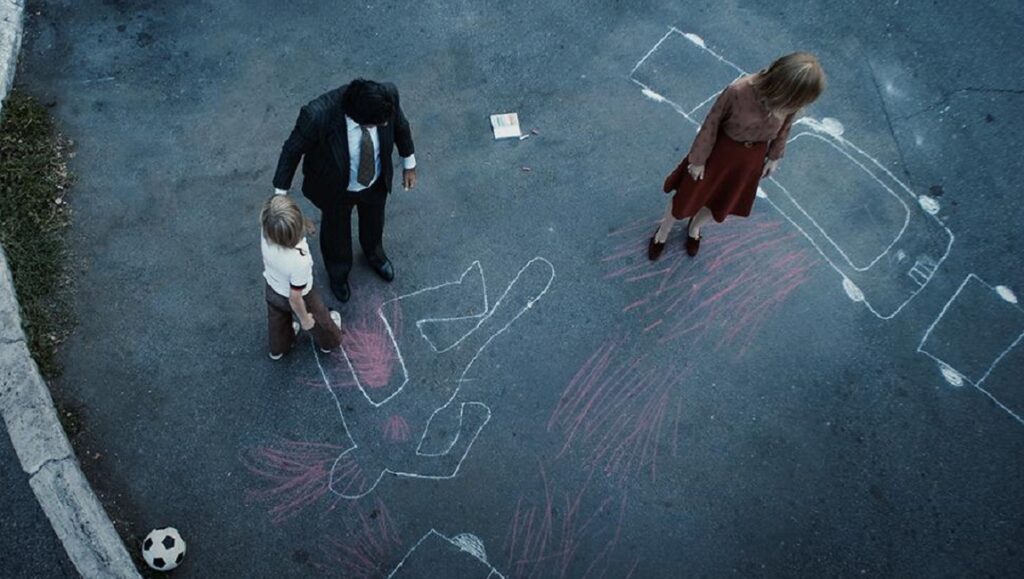The best thing one can say for Claudio Noce’s Padrenostro is that its narrative is well-intentioned. The film attempts to reckon with the lingering effects of an assassination attempt on Italy’s deputy police commissioner (inspired by Noce’s real-life father, who was almost killed in 1976) on both a personal and collective level, as the emotional fallout from the attack ripples across generations and extends outside of their immediate nuclear family. But good motives mean nothing unless they’re actually followed through on, because otherwise you just have an empty gesture, which is a far more fitting title to bestow upon Padrenostro.
Bearing witness to this inciting incident is 10-year-old Valerio, who after seeing his father nearly murdered in front of him, begins to fear for his family’s safety and becomes hysterical. At dinner, he imagines that the visiting guests will open fire once they’re let in through the front door. More importantly, the event forces Valerio to learn a lesson most only receive during their second decade on this planet: that his father, Alfonso (Pierfrancesco Favino) isn’t invincible, and so the threat of his being killed at any moment hangs over their ensuing, awkward interactions. It’s at this point that Valerio meets Christian, a slightly older boy who takes the young man under his wing; soon, he begins to appear whenever it seems like Valerio needs his father most, serving a surrogate paternal figure and a possible figment of Valerio’s imagination. Thankfully, Noce doesn’t commit to the most obvious of narrative dead ends, but he side-steps that one for a pretty hackneyed turn all the same: that Christian’s father was the one who tried to kill Alfonso at the start, turning what should be Noce’s examination of a slice of his rather specific and very much “real” trauma into a contrived thriller that exploits and trivializes the severity of these events.
By the end, it’s not even firmly established just what the emotional relationship between Valerio and his father entails at this point. Rather than investigate the neo-liberal institutions and policies that made men like Alfonso and Christian’s father supposed “enemies” in the first place, Noce instead chooses to end on a framing device that begs for platitudes of understanding and acceptance. As per usual with “well-intentioned” art like this, the type that Obama-loving critics just eat up, this is best-suited for the nearest dumpster rather than the next international film festival.
Published as part of Venice International Film Festival 2020 — Dispatch 2.


Comments are closed.